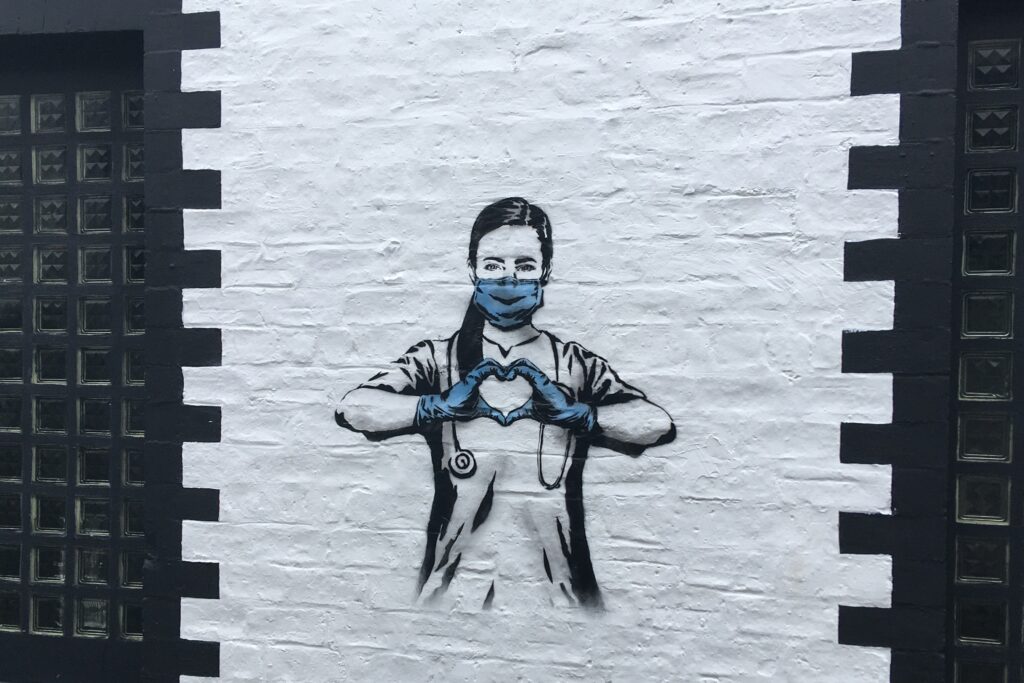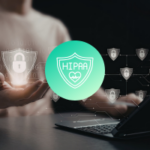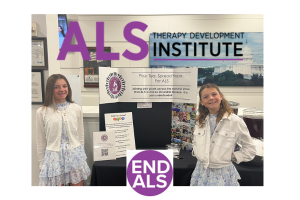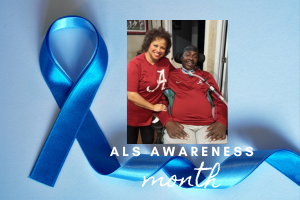“ALS Doesn’t Stop. We Can’t Either!” This was the rally cry of the 2020 ALS Advocacy Conference.
When the conference on Capitol Hill was cancelled due to Covid-19, there was a brief moment of disappointment and concern before advocates straightened their shoulders and got to work on an alternative: a virtual conference!
Why is this extra special? One of the most ironic truths about ALS advocacy is that the very people whose voices are most important — the patients — are often unable to travel to Capitol Hill due to the severe nature of their illness and the exorbitant challenges and costs posed by travel. You can’t just hop on a plane when you’re toting along a 75-pound wheelchair. First the first time ever, the conference was broadcast online, thereby available to anyone with internet access.
Even better, the ALS Association recorded every online session and made them accessible even after the live discussions.
Truly, this experience has been an amazing silver lining, and we were so thrilled to be a part of the event as a sponsor…but we know not everyone has time to sit down and watch 4+ hours of legislative presentations and policy updates.
That’s why we created the SimpliHere 2020 ALS Advocacy Conference Debrief! We’re dedicating one blog post each (3 sessions, 3 blogs) to break down the conference sessions and help you catch up, stay informed, and advocate in a blink.
First up, Day One, entitled “Capitol Hill Update 2020: ALS Advocates Make All The Difference.” Here’s what we learned:
1. The Promising Pathways Act Is Showing Promise
2. We Need More Folks To Register With The National ALS Registry

Chair of the Public Policy Committee at the ALS Association Ken Menkaus underlined the importance of ALS patients sharing their data with the ALS Registry to help researchers pinpoint common causes. “It’s our answers that will give them the ability — eventually — to figure out what combination of factors is responsible for ALS,” he said, adding later, ““We have an ethical obligation not only to pursue cures and treatments for those of us with ALS but also to serve the next generation…people who haven’t been diagnosed yet. The registry is the place where we are going to crack the code.”
3. We’re Closer To Passing The ALS Disability Insurance Access Act Than We Thought
The good news? The Act is just 52 sponsors away from getting on the consent calendar (per H.Res.6, which says that a bill with 290 or more cosponsors can go to the senate floor for a vote). Welch believes we can get there.
4. COVID-19 May Raise Awareness For The Fight Against ALS

Rep. Welch also gave us some food for thought on COVID-19 and how it may inform legislative decisions regarding ALS And our nation’s healthcare system. There is little cost-sharing for COVID testing, care, or vaccines, he points out, adding, “that’s important because no one is responsible for COVID. It’s a pandemic.”
This mentality may indicate a shift in how we view our healthcare system. “Do we want to have a healthcare system that will meet our needs?” he asks. “Or do we want to have a constant battle to have proper attention paid to someone we love?”
The number of people affected by ALS (though much higher than many may realize) is still a fraction of the population, and it’s an incredible challenge to get proper attention brought to the disease and its patients. “The respiratory illnesses associated with COVID are no stranger to the ALS community,” says Welch.
“The respiratory functions of ALS patients are so severely compromised. I see COVID broadening awareness of the respiratory issues that people face…I see us getting allies when more and more people are aligned with a goal of having a healthcare system for all Americans when they need it.”
5. The ALS Caucus And DOD Are Leading The Fight For ALS Funding
Former Veteran and current Colorado Rep. Jason Crow gave us the quick and dirty on ALS Caucus funding efforts. With over 130 members from both sides of the aisle, the Caucus has called for funding for ALS research, including, says Crow, $45 million for the National Institute of Health. “ALS tackles some of the riskier investments that companies in the private sector may be hesitant to make,” Crow explains, “So it’s important we tackle it at the NHS level.”
Crow has also been working for $40 million for research funding at the next NDAA in 2021 and $10 million to fund the National ALS Registry’s continued efforts to collect data on ALS patients across the country, an effort which he says is imperative. (Click here to join the Registry!)
And right alongside the ALS Caucus is the DOD, which has a vested interest in finding treatments and cures for ALS. Veterans, after all, are twice as likely to receive an ALS diagnosis, in which case the diagnosis is considered directly linked to their service.
Our biggest takeaway was right there in the title of the session…”ALS Advocates Make All The Difference.” The key to the progress and success of the Caucus has been advocates reaching out to their representatives and telling them exactly why ALS patients need their help, and why this legislation matters. Why change matters. It’s the personal stories, the personal asks for help that make change happen. As advocate Christa Thompson once told us, “No one can look an ALS patient in the eye and say they’re not going to help.”
About SimpliHere
The mission of SimpliHere is to ensure efficient care and peace of mind for caregivers and their patients with neurological conditions that impact communication and mobility. Joanna Rosenberg founded SimpliHere to address communication gaps between caregivers and patients. Her personal experience when her mother lived with ALS exposed the challenges of communicating and understanding basic needs, as well as managing daily tasks. Download SimpliHere today!

The granddaughter of an ALS patient, Emma Comery is a Writer and Social Media Contributor with a passion for writing about amazing humans.








